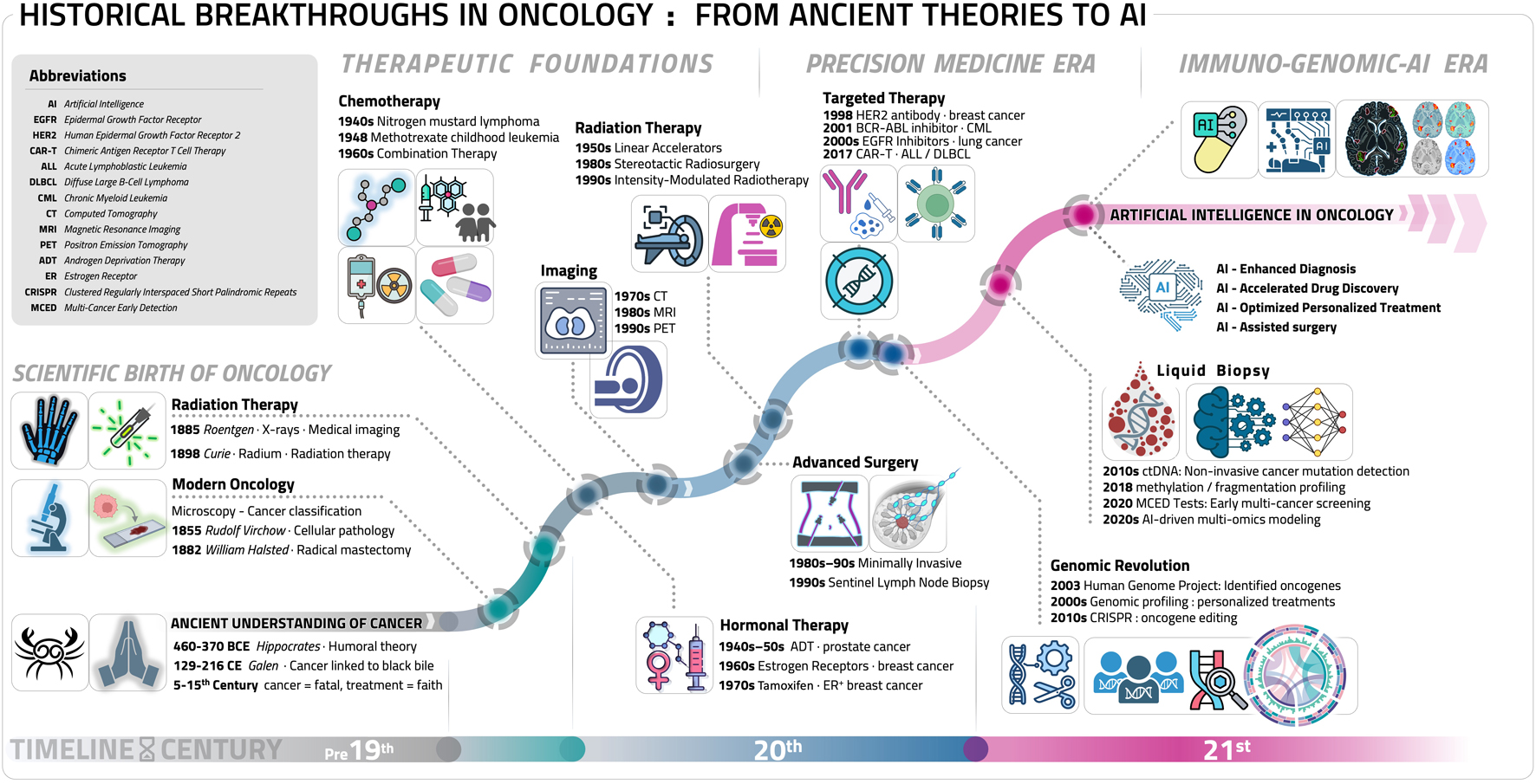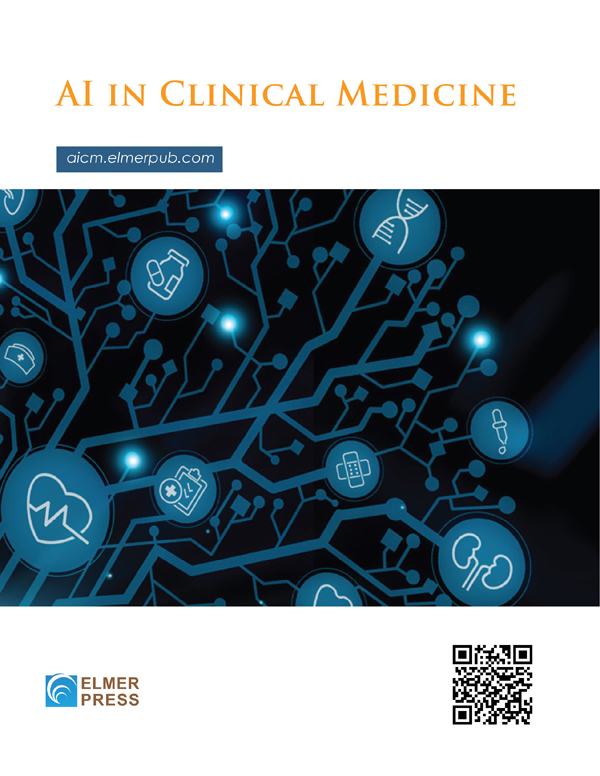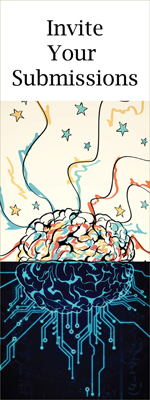Historical Breakthroughs in Oncology: An AI-Assisted Perspective
DOI:
https://doi.org/10.14740/aicm2Keywords:
Oncology, Cancer therapy, Precision medicine, Immunotherapy, Chemotherapy, Radiation therapy, Artificial intelligence, Genomic medicineAbstract
The field of oncology has evolved dramatically over centuries, transitioning from ancient theories to modern, technology-driven treatments. This manuscript chronicles key milestones in cancer research and therapy, highlighting pivotal discoveries that have shaped the discipline. Early understandings of cancer, rooted in Hippocrates’ humoral theory and Galen’s black bile hypothesis, dominated until the 19th century, when Rudolf Virchow’s cellular pathology and advancements in microscopy revolutionized cancer science. The late 19th and early 20th centuries introduced radiation therapy, following Wilhelm Roentgen’s discovery of X-rays and Marie Curie’s work with radium, laying the foundation for targeted tumor treatments. The mid-20th century saw the rise of chemotherapy, beginning with nitrogen mustard and antimetabolites like methotrexate, while hormonal therapies emerged for breast and prostate cancers. Surgical innovations, including minimally invasive techniques and sentinel lymph node biopsies, reduced invasiveness and improved recovery. The 21st century ushered in precision medicine, with targeted therapies such as imatinib (chronic myeloid leukemia (CML)) and trastuzumab (human epidermal growth factor receptor 2-positive (HER2+) breast cancer), alongside breakthroughs in immunotherapy (checkpoint inhibitors, chimeric antigen receptor (CAR)-T cells) and genomic medicine (clustered regularly interspaced short palindromic repeats (CRISPR), liquid biopsies). Artificial intelligence (AI) now enhances diagnostics, drug discovery, and personalized treatment planning. Future directions emphasize early detection, AI-driven precision oncology, and global collaboration to transform cancer into a manageable condition. This historical perspective underscores the remarkable progress in oncology, driven by scientific innovation, and envisions a future where cancer care is increasingly effective, personalized, and accessible.

Published
Issue
Section
License
Copyright (c) 2025 The authors

This work is licensed under a Creative Commons Attribution-NonCommercial 4.0 International License.






